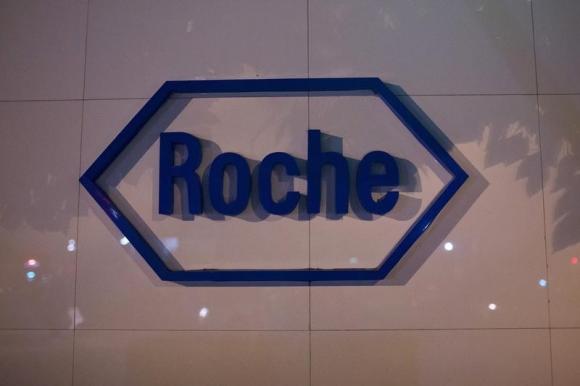(Reuters) – A new breast cancer drug from Roche has shown unprecedented benefits in extending lives in a clinical trial and experts urged its widespread use for women with an aggressive form of the disease.

Patients with a type of breast cancer known as HER2 positive, which makes up about a quarter of all breast cancers, who were given Perjeta on top of older medicine Herceptin and chemotherapy lived 15.7 months longer than those on Herceptin and chemotherapy alone.
That is the longest extension to survival ever seen for a drug studied in metastatic breast cancer and also an unusually good result for any type of metastatic cancer, where disease has spread to other parts of the body.
The result is a vindication of combining medicines that fight tumor cells in a variety of ways.
Both Herceptin and Perjeta are antibodies designed to block the function of HER2, a protein produced by a cancer-linked gene. Perjeta, also known as pertuzumab, binds to a different part of the same protein, which makes combining the two drugs extra effective.
The results, I think, are phenomenal, lead researcher Sandra Swain from the Washington Hospital Center told the European Society for Medical Oncology (ESMO) annual congress in Madrid on Sunday.
The survival improvement of nearly 16 months … is unprecedented among studies of metastatic breast cancer.
Perjeta, which was approved by regulators two years ago, was tested in the Roche-backed study involving more than 800 women.
Researchers had previously reported the Perjeta drug regimen significantly extended progression-free survival, or the period of time patients live without their disease worsening, but the final overall survival data has taken longer to collect.
The median overall survival time was 56.5 months for those given Perjeta against the already impressive 40.8 months for patients taking only the older drugs.
Looking at the study results a different way, the risk of dying was reduced by 32 percent for women who received the Perjeta regimen compared to those who got Herceptin and chemotherapy.
While both Perjeta and Herceptin have side effects, including rash, diarrhea and a potentially adverse impact on heart function, using the two drugs together did not make these issues any worse.
I think these data are really compelling, said Eric Van Cutsem of the University of Leuven, who was not involved in the research. When you see in breast cancer such a big change in survival with not a lot of cardio-toxicities then that is really practice-changing.
REMARKABLE RESULTS
Swain and Javier Cortes, another researcher on the study from the Vall D’Hebron Institute of Oncology in Barcelona, said the results suggested using Perjeta should now be the standard of care for HER2 positive breast cancer patients.
A favorable reaction from oncologists will underpin expectations of strong sales for Perjeta, which analysts currently expect to sell $3.1 billion a year by 2018, according to consensus forecasts compiled by Thomson Reuters Cortellis.
But it poses a challenge for healthcare providers, since Perjeta and Herceptin are costly injectable drugs and the multiple-drug regimen promises to strain budgets.
In the United States, the monthly price of Perjeta is approximately $5,900, while Herceptin costs around $5,300, a Roche spokeswoman said. Prices in Europe are lower.
For Roche, Perjeta is an important new product that should help defend its position in breast cancer, following the success of Herceptin, which was first approved in 1998.
The company said the latest data would be submitted to regulatory authorities around the world for inclusion in the prescribing information for Perjeta.
The Swiss drugmaker also has another related drug called Kadcyla, which is also being tested in combination with Perjeta. Some analysts believe Kadcyla’s prospects could be curbed if results from that combination are not better than the impressive findings reported this weekend.
(Editing by David Holmes and Michael Urquhart)





